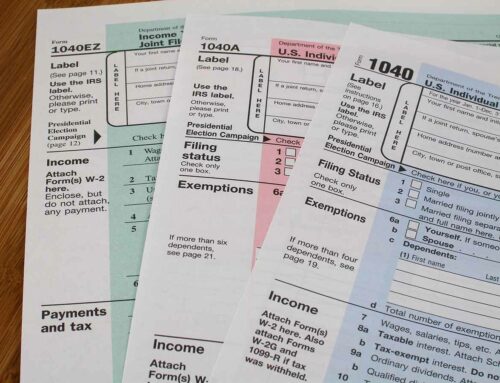2019 Federal Income Taxes
Federal income taxes are assessed by the IRS on your worldwide income. The amount of tax you’ll need to pay is determined by your gross income, less your standard deduction and any tax credits. The amount you will owe is then determined by the tax bracket you fall into and your filing status. You will report these taxes on a 1040 tax return, together with any relevant schedules.
Your Filing “Status”
Your filing status is used to determine the rate at which your income is taxed.
Single:
If on the last day of the year, you are unmarried or legally separated from your spouse under a divorce or separate maintenance decree and you do not qualify for another filing status.
Married, Filing Jointly:
You are married and both you and your spouse agree to file a joint return. (On a joint return, you report your combined income and deduct your combined allowable expenses.)
Married, Filing Separately:
You must be married. This method may benefit you if you want to be responsible only for your own tax or if this method results in less tax than a joint return. If you and your spouse do not agree to file a joint return, you may have to use this filing status.
Head of Household:
You must meet the following requirements: 1. You are unmarried or considered unmarried on the last day of the year. 2. You paid more than half the cost of keeping up a home for the year. 3. A qualifying person lived with you in the home for more than half the year (except temporary absences, such as school). However, your dependent parent does not have to live with you.
Qualifying Widow(er) with Dependent Child:
If your spouse died in 2019, you can use married filing jointly as your filing status for 2019 if you otherwise qualify to use that status. The year of death is the last year for which you can file jointly with your deceased spouse. You may be eligible to use qualifying widow(er) with dependent child as your filing status for two years following the year of death of your spouse. For example, if your spouse died in 2017, and you have not remarried, you may be able to use this filing status for 2018 and 2018. This filing status entitles you to use joint return tax rates and the highest standard deduction amount (if you do not itemize deductions). This status does not entitle you to file a joint return.
Federal Income Tax 2019 Standard Deduction
The standard deduction is the amount you deduct from your earnings to calculate your taxable amount. The 2019 federal income tax standard deductions are:
- Single: $12,200
- Married Filing Separately: $12,200
- Head of Household: $18,350
- Married Filing Jointly: $24,400


Leave A Comment